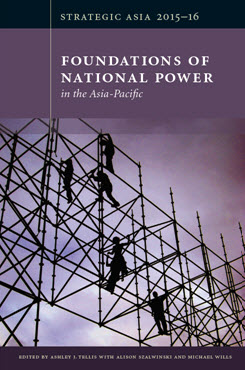India's Unrealized Power
This chapter assesses the foundations of India’s power by examining the country’s national resources, capacity for extracting these resources to enhance national power, and finally the scope of that power.
EXECUTIVE SUMMARY
MAIN ARGUMENT
India has considerable strengths that have enabled the country to assume a fairly robust international role. In addition to a rapidly growing economy, it possesses significant national resources and a state elite that shares a broad consensus and stands above society. India, however, has failed to realize the full power potential of its human and natural resources because of bureaucratic inefficiency, coupled with political dysfunction resulting from the lack of elite cohesion. Therefore, though India is growing stronger, its power position relative to other countries such as China has not improved and indeed might have worsened. Unless its bureaucratic apparatus becomes more efficient or less dominant—or both—the country’s capacity to generate power will continue to suffer.
POLICY IMPLICATIONS
- India’s continued growth will further skew the regional balance of power in South Asia and make Pakistan even more anxious.
- Although India’s growth will only marginally affect its relative power position vis-à-vis China, it is still likely to increase China’s balancing efforts and strengthen Sino-Pakistan strategic ties.
- Stronger Sino-Pakistan ties could lead to greater cooperation between India and the U.S., even though India’s domestic politics will continue to limit open acknowledgement of the strategic partnership.
Strategic Asia
The Strategic Asia annual edited volume incorporates assessments of economic, political, and military trends and focuses on the strategies that drive policy in the region. Learn more about Strategic Asia.



